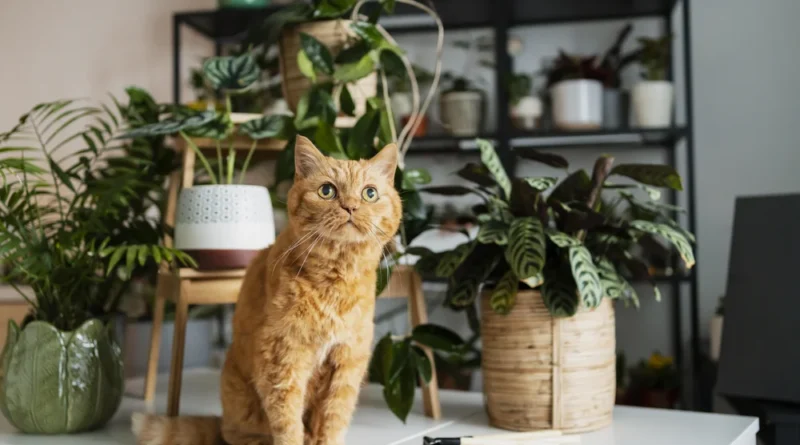Is Eucalyptus Safe For Cats
What Makes Eucalyptus Potentially Harmful to Cats?
Eucalyptus may smell wonderful and bring a sense of calm to your home, but for our feline friends, it’s a whole different story. You might love using eucalyptus oil in your diffuser or keeping a few sprigs in a vase, but did you know it can be dangerous for your cat?
The main problem is a compound called eucalyptol, which is found in both the plant and the oil. While it has soothing benefits for humans, like easing congestion and creating a spa-like atmosphere, cats are incredibly sensitive to it. Their bodies can’t break it down the way ours can, so even a small amount of exposure can lead to trouble. Whether they chew on a leaf, lick a drop of oil, or simply breathe in the fumes, it can make your cat very sick.
Signs and Symptoms of Eucalyptus Poisoning in Cats
If you have eucalyptus in your home, it’s important to keep an eye on your cat for any signs of poisoning. Cats are curious creatures, so if they get close to a plant or oil, they might show some worrying symptoms. Here’s what to watch out for:
- Drooling: If your cat is suddenly drooling a lot, that’s a red flag. They could have chewed on a leaf or licked some oil.
- Vomiting and Diarrhea: Their digestive system doesn’t handle toxins well, so an upset stomach is a common reaction.
- Lethargy: Is your usually playful cat acting like they’ve lost all their energy? This could be a sign something’s wrong.
- Trouble Breathing: If your cat is wheezing or breathing oddly, it’s time to take action.
- Unsteadiness: Eucalyptus poisoning can mess with a cat’s nervous system, leading to wobbly movements or a loss of coordination.
It can be scary seeing your pet like this, but the most important thing is to stay calm and act fast.
What to Do If Your Cat Is Exposed to Eucalyptus
So, what should you do if your cat gets into eucalyptus? Here’s a simple plan to follow:
- Get Rid of the Eucalyptus: Whether it’s a plant or an essential oil, move it out of reach immediately. You don’t want your cat going back for more.
- Call the Vet: Don’t wait! Call your veterinarian right away and explain what happened. They’ll ask how much your cat was exposed to and what symptoms you’re noticing.
- Watch for Symptoms: Keep a close eye on your cat. Any changes in behavior, breathing, or appetite should be reported to the vet. It helps them decide how urgent the situation is.
- Follow Your Vet’s Advice: The vet may ask you to bring your cat in for a checkup or give you instructions on what to do at home. Always follow their guidance—it’s the safest way to help your furry friend.
The sooner you act, the better chance your cat has of recovering without any lasting issues.
Also Read: Are Orchids Toxic To Cats
Safe Alternatives to Eucalyptus for Cat Owners
If you love having plants or diffusing oils around your home, don’t worry—there are plenty of pet-safe alternatives that will let you keep your space fresh without putting your cat at risk. Here are a few ideas:
- Catnip: Not only is it safe for cats, but they absolutely love it! You can grow it indoors, and your kitty will thank you for the extra treat.
- Lemon Balm: This plant has a lovely, calming scent, and it’s completely non-toxic to cats. Plus, it’s great for teas and home remedies for humans.
- Spider Plant: A classic indoor plant, the spider plant is safe for cats and even helps purify the air. It’s a win-win!
- Lavender: While the essential oil version can be risky, keeping a dried lavender bundle or growing the plant itself is usually safe and adds a relaxing scent to your home.

